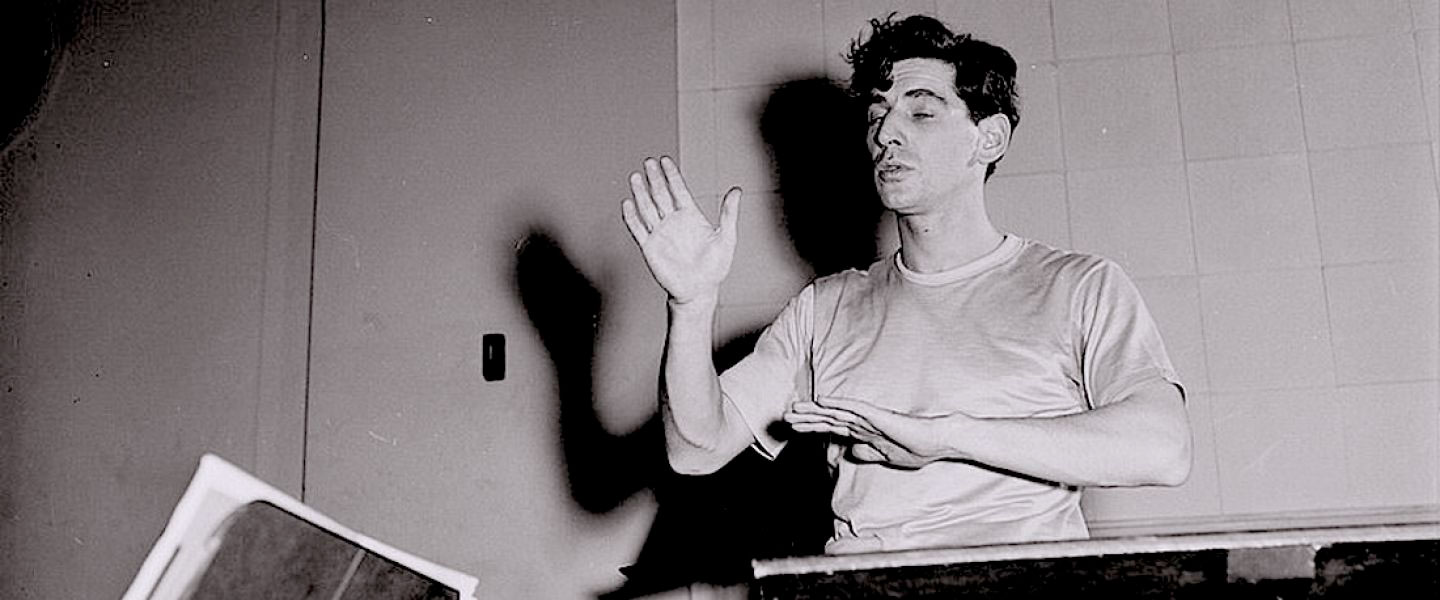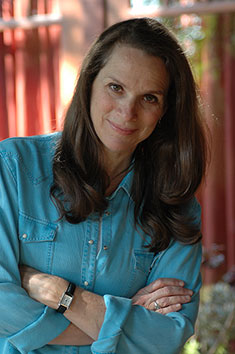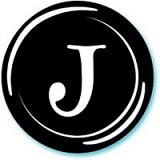Grabbing the Narrative for Yourself: An Interview with Jamie Bernstein
Joy Horowitz interviews Jamie Bernstein
October 18, 2018
published in the Los Angeles Review of Books

THE CENTENNIAL OF Leonard Bernstein’s birth has inspired lavish, seemingly unending celebrations around the world — concerts, museum exhibits, and competing biopics starring Bradley Cooper and Jake Gyllenhaal extolling the musical genius of the great conductor, composer, and showman. But there is one clear-eyed insider’s view that should not be missed: a new memoir from the maestro’s first-born daughter, Jamie Bernstein. Famous Father Girl: A Memoir of Growing Up Bernstein is a remarkable tribute, not simply because the author reveals deeply intimate aspects of her family history but because she does so with an abiding love and honesty.
What emerges is a portrait of an impossibly brilliant father, at once fun-loving and cruel — a man who was “almost psychic at locating a young person’s most vulnerable inner bruise.” “You see this line here that runs down the middle?” he asked at her 28th birthday party, pointing to the crease in his forehead. “That’s the Line of Genius. You don’t have one.” Fueled by Scotch and an array of prescription pills, flicking lit cigarettes at his children and ramming his tongue down their throats, he was monstrous but also irresistible — a big lover of life and family who nonetheless left his daughter repeatedly wondering: “Why did Daddy have to make everything so squirm-worthy?”
Now 66, writer, filmmaker, and concert narrator Jamie Bernstein remains the keeper — along with her brother, Alexander, and sister, Nina — of her father’s legacy. As a result, she’s been especially peripatetic this year, crisscrossing the globe to honor her father’s centenary. I caught up with her by phone to talk about all things Bernstein. We have been friends since our undergraduate days at Harvard, when her father arrived on campus to deliver the prestigious Norton Lectures. Like so many others who had grown up watching him on TV, I was a star-struck fangirl who had no idea what was really going on in his secret life, at a time when he was struggling to come out as gay while living with his lover in his old dorm. I knew about none of this until I read Jamie’s book. As old Jewish pals are wont to do, we began the interview by greeting each other with the Yiddishized versions of our first names, like our bubbes.
¤
JAMIE BERNSTEIN: Joyala!
JOY HOROWITZ: Jamela! How are your many travels?
Crazed but good. I’m just a little weary is all. Other than that, I cannot complain.
I was struck in reading your book that both our moms died of breast cancer while both our dads died of mesothelioma and felt the need to hide the truth of their lives from their Old Country Jewish mothers.
I was hoping for overlaps, generally, because I was telling a story about our generation, too. What it was like to grow up in our country in our world in those years. That was a whole part of it.
To me, your book hinges on the letter your mother wrote to your father before they were married.
Oh right. That letter.
Yes. Your mother wrote:
[Y]ou are a homosexual and may never change — you don’t admit to the possibility of a double life, but if your peace of mind, your health, your whole nervous system depends on a certain sexual pattern, what can you do? I am willing to accept you as you are, without being a martyr or sacrificing myself on the L.B. altar.
How and when did you discover that letter?
That letter was, with a whole bunch of other stuff, in a sealed envelope in the possession of my father’s manager, the notorious Harry Kraut. It said on the front not to open until 25 years after my father’s death. Something like that. Somebody in the Bernstein office called my brother and sister and me and said, “There’s this sealed envelope in a file cabinet in the back room. Does anybody know what it is?” We didn’t know, so we looked at each other and said: “We’re not going to wait another 25 years or whatever it was. Let’s just open it!” So we did.
No one had ever seen this letter before. It was kind of revelatory, because we did not have this evidence that our mother knew exactly what she was getting into, but obviously she did. And that was so impressive and fascinating to discover. There it is: they went into it with their eyes wide open.
There is a breathtaking kind of honesty in your writing. On the one hand, it’s infused with your love for everybody. On the other hand, we learn painful things about your dad’s betrayal of your mother, his apparent drug addiction. How did you summon the courage to write this story the way you did?
Well, my rule of thumb is that everything you try to hide is going to come around and bite you in the ass. So you’re much better off grabbing the narrative for yourself and presenting it in the best way you can. And then present it in a context of love and caring and connection. That’s the best you can do in this life regarding anything — especially in this day and age. What do we have except the truth as best we can tell it? And, yes, truth is relative, so the most we can hope to do is tell it like we saw it. About everything.
Some readers thought there was an ick factor. They’re basically squeamish and don’t want to hear about bodily functions. I’m getting some very strange responses. What I was trying to do in the book, especially in the early chapters, was to present an experience of the world as a child, when so much that happens to you is sensory. You don’t have analytical faculties yet, so you’re not thinking about what things mean. You’re just experiencing them. Actually, the first draft was even more that way, and my editor made me go back and back and back over those opening chapters because he felt they were so different from the later ones. And he wanted a through-line. I really wrestled with those first sections, because I was writing them totally from memory. For the later chapters, I had my journals to refer to.
Looking back, what was the most difficult part of writing the book for you?
That’s a good question. I can’t remember what it felt like to be writing the book except that it was a gigantic task that was always pressing on me. It reminded me a lot of being pregnant, actually. That feeling that, no matter what you’re doing, you’re always cooking this gigantic thing. Remember that feeling?
Yes, of course.
That’s kind of what the book felt like. No matter where I was, I was doing it. I wrote it on planes. I wrote it in hotel rooms. I wrote it on trains. I wrote it anywhere I was. I was always working on it. I can’t remember any more what part was harder than another. It was all a continuous breathing exercise.
How long did it take to write?
It took about two years to produce the manuscript, and then it took another year for the publisher to generate the actual book.
What was the timing of your getting breast cancer?
That’s right. That happened in the middle of it, too. I was so glad I had this big thing to do, because it didn’t matter what I was going through or how I felt that day. I still had to sit down, put my butt in the chair for hours at a time, no matter what. That helped me so much, because I just had to think about the writing and nothing else. I was grateful, very grateful.
It was two or three months after handing in the first draft that I got the bad biopsy. Then I had to start going through all the treatment mishegoss. I was working by then on a second draft, then on a third. It was a year ago that I was done with all the radiation and by then the book was already in production. As you can see, it’s all just a big blur. I just put my head down and pushed my way through.
Your writing about the impact of Tom Wolfe’s famous article “Radical Chic,” in which he spoofed your parents’ fundraiser for the Black Panthers and broke your mother’s heart, was so powerful to me.
About 10 years ago, there was an amazing series of articles about my father in The New Yorker by the music critic Alex Ross. They were a real eye-opener that gave me a lot more information and illumination. That was when I found out about all the hate mail my father received after Wolfe’s article was published and about the Jewish Defense League picketers probably being infiltrated by the FBI. I wrote an article for The Nation, and those fact-checkers really kicked my ass. They were the ones who read the FBI files and said, “It’s not verifiable from the files that the JDL picketers were infiltrated.” I had been going around claiming this, including in the book, and it turns out it is not 100 percent certain. I’m sure it’s true, but the evidence was not a slam dunk.
I had no real understanding of what your plight was when your dad came to Harvard while we were there. He was really struggling with his sexual identity. Thinking back on it, it was such a bizarre, closeted time.
It was only after we graduated that things started to open up a little. Disco culture came in, gay culture started appearing on everyone’s radar. That was around 1976, 1977.
My first college boyfriend came out of the closet in the middle of our romance. He was my freshman year boyfriend when I lived up at Radcliffe. God, he was so pretty. He was from Mississippi and had pink plastic glasses, like a lot of cute guys did back then. I guess it was a thing I liked. He announced one day that he could not pursue our relationship any further because he was gay. It was all just starting back then.
When you confronted your dad about the rumors you had heard that he was gay, he lied to you. In looking back on it, you wrote about his “slow creep toward overt gayness.” Wouldn’t it have been possible at that moment for him to say, “Yes, darling, it’s true”?
I don’t know. It’s easy to say that now, but back then it would have been sort of calamitous for his career — the orchestras were still really old-fashioned. It was like a subculture. You couldn’t just put it out there. Plus, as I said in the book, let us never forget: his mother was still alive. And as long as she was alive, he couldn’t bring himself to do it. It was going to be too weird, because she was from the Old Country and the old culture, and it was unthinkable in that culture to be overtly gay. It was not even discussed.
You write in the book about how there really wasn’t room in your family for anyone to be ambitious and successful except for your dad.
Well, you know, it was a mixed message. We were all certainly encouraged to be successful in the world. But it wasn’t overt. There was this implicit understanding that there could only be one superstar in the family. Everyone else was at a lower level. That’s why trying to pursue music, as I did, was discouraging and frustrating, because we were all taking piano lessons. It was supposed to be part of our lives. But there was also this unspoken understanding: you’ll certainly not be excelling at any comparable level. My father was very competitive. He would not have been thrilled to be overshadowed by somebody else. We felt it. I wrote about when he lost at Anagrams. It’s a silly example. But he was just shattered to lose. It wasn’t worth it because he’d put a pall of gloom over the house.
And then there was the beautiful realization of your mutual love for John Lennon and the Beatles.
Yes, it was such a bonding experience for us. It also gave him direct entry to pop music, which he was interested in. So, he could learn about it from his kids. But back then, when the Beatles and Motown and the Stones were in their glory, he was so into it. He just loved that music. Because he was so fed up with 12-tone music. That’s why he put so much rock music into his Mass. It was really like he was making a statement, saying rock music has more energy than anything coming out of the conservatories.
You write about your ambivalence toward “riding the LB train,” how your shrink advised you not to be another Anna Freud, needing to extol your father’s glory.
It was a good piece of advice, actually. Don’t be subsumed by your father. Not that I knew how to go about it or anything.
To me, that’s the real undercurrent of your book — how to figure out your place in the world apart from him, while at the same time taking from him all this phenomenal energy and creativity. By the end of the book, you had sorted out a way to do both.
It was really an accident. I can’t say I figured it out.
The other thing that works out, as you describe in the book, is your relationship with your siblings. Your closeness, particularly with your brother, is quite remarkable.
That is the luckiest break of all, I think. It really is. It’s just amazing. I meet a lot of people who don’t get along with their siblings, and I just think: Man, I really got lucky.
You guys are really close.
Yeah. Too close. I suffer from it, because being married to one of the heads of the three-headed monster means you wind up being married to the whole creature. It was too much for my husband and it was too much for Alexander’s wife. Both of those marriages ended. The center of our lives was each other and, to a somewhat lesser degree, our spouses. Going to the Connecticut house on the weekends. The Christmas Eves and the Thanksgivings and the Seders. Together, together, together, together. My ex-husband used to say, “God, you guys are like hamsters. You’re on the same couch together intertwining your legs.” And it’s kind of true. It would be exhausting if you were married to one of the three of us.
Can I say one more thing about my siblings? I’m actually feeling a little bad right now, because it only occurred to me a few weeks ago that all the attention and hoopla from the book is making my siblings go through it all again. I said something about that to my brother, and he said, “Ya think?” I feel a little bad.
You mean you feel guilty you’re getting the attention?
Yeah! I’ve created the old celebrating-the-family-member dynamic all over again. It makes me feel ambivalent. I mean, I’m thrilled the book is getting all this attention. It’s a dream come true. I didn’t dare fantasize because I wanted it so badly. So I feel ecstatic about that but also sad that my siblings are suffering because of it.
Are they really suffering?
I had two back-to-back events when the book was published. They had to attend. They’re sitting dutifully in their seats, applauding for their family member. I’m like, “Sorry, guys.”
You’re allowed to have your moment of glory.
Yeah. So I’m having it. It’s pretty sweet. That’s a fact.
¤
published in the Los Angeles Review of Books



